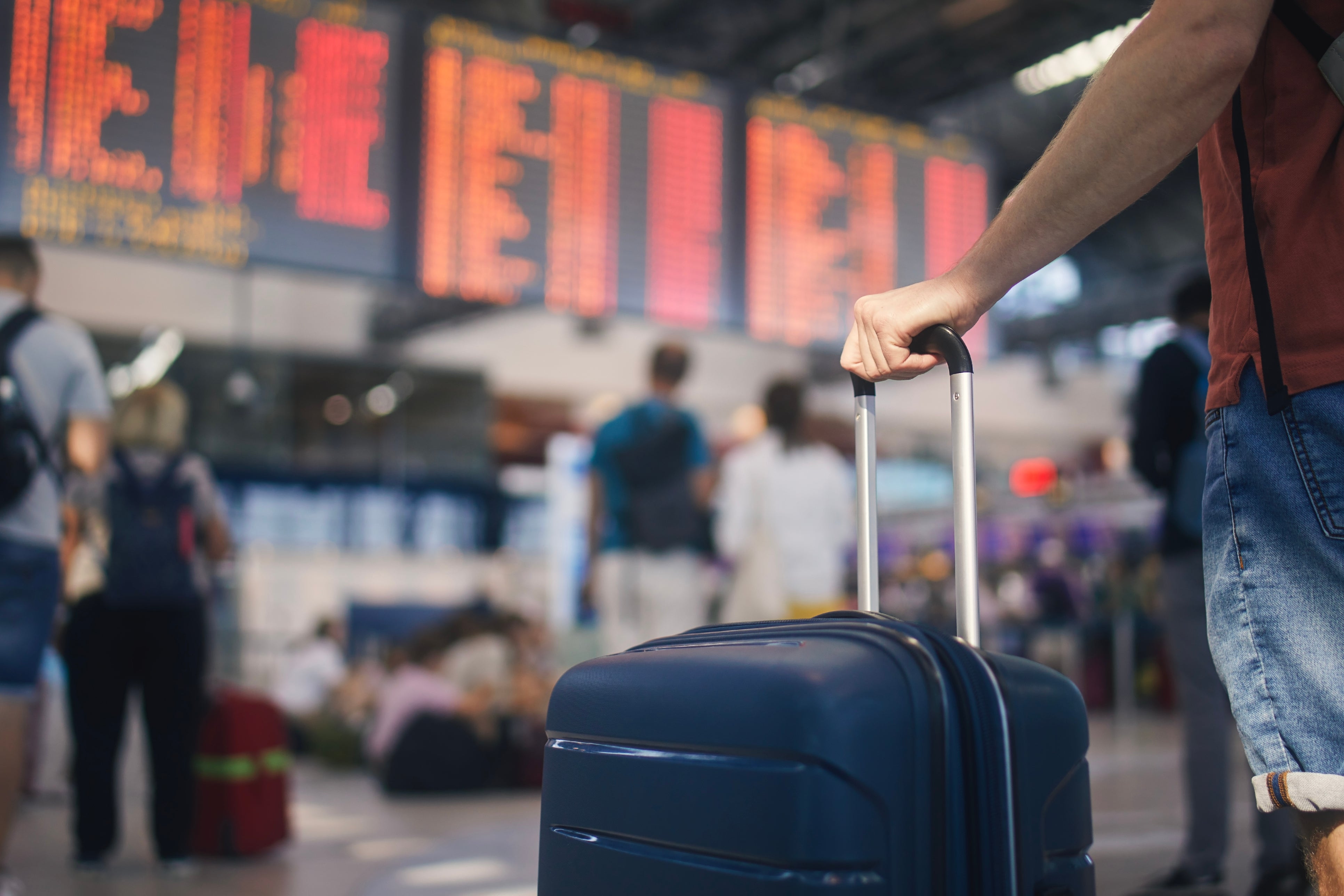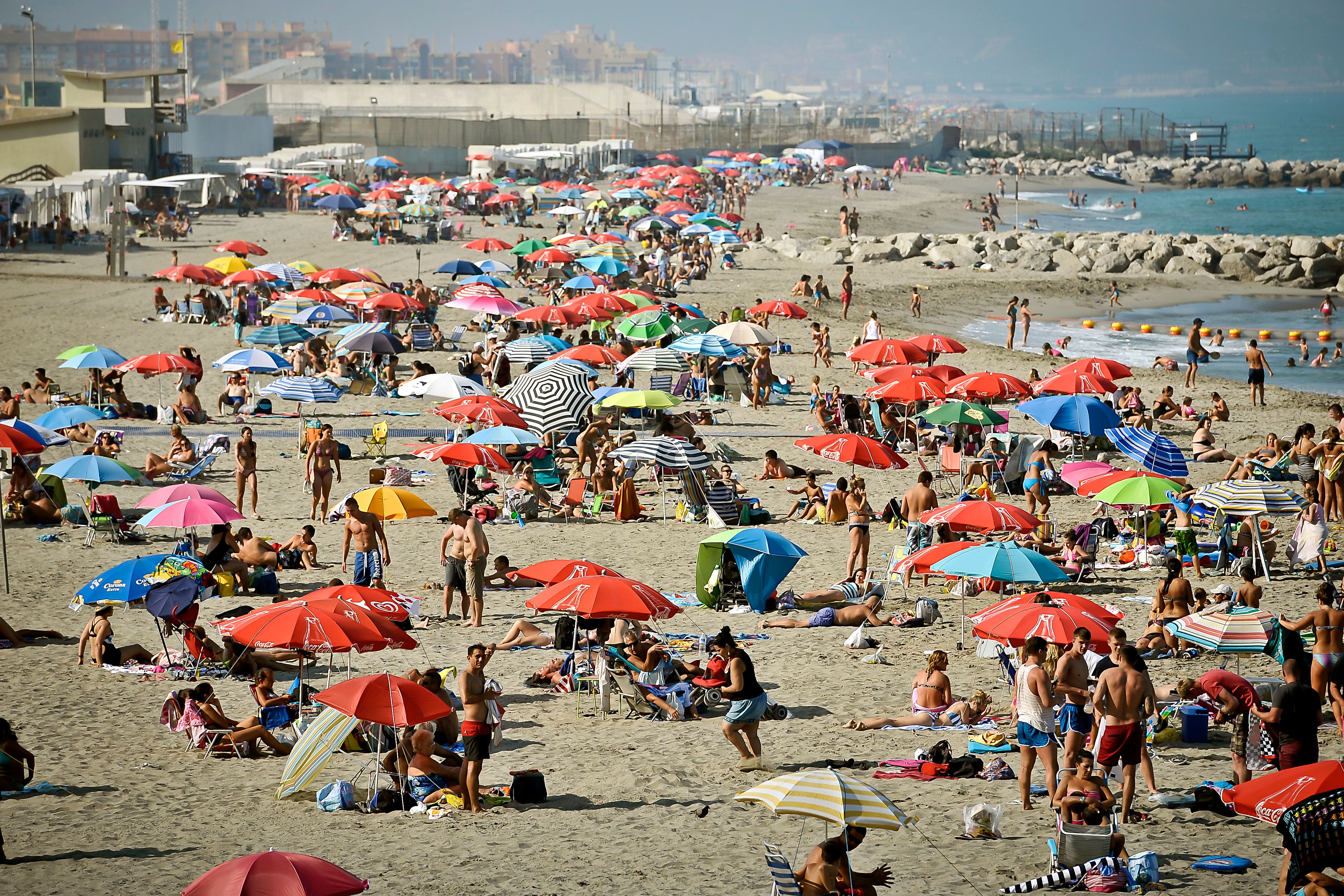How do Asian flights pick the right way around the world?
Simon Calder maps flight routes for Asian flights, reveals what you can and can’t check in/carry on to a plane, and outlines package holiday protection


Q My friend is flying from Helsinki to Tokyo Narita. I see that the flight has taken the northwestern route over Norway towards Greenland and Alaska. The Helsinki to Tokyo Haneda flight took the same route. Yet two other flights to Asia – to Osaka in Japan and Seoul in Korea – left Helsinki at almost exactly the same time but flew southeast to Poland, then around Ukraine and north of India. What decides the different routes?
Raymond F
A Until February 2022, the Finnish national airline had an excellent niche proposition: a location where its own version of a trans-Siberian express could thrive. Its hub, Helsinki, was uniquely well placed to connect passengers from across western Europe with Japan, China and South Korea.
Once they reached the well-organised airport in the Finnish capital, they could connect to long-haul flights on a range of routings across Russia. On routes such as Manchester-Seoul or London Heathrow-Tokyo, the distances were very close to the most direct routes. Flights were still long; Helsinki to Tokyo is almost 5,000 miles, going the most direct route. But I heard plenty of good reports about the Finnair connection.
Once the Kremlin decided to invade Ukraine and Western aircraft were banned from Russian airspace, life became much more complicated for Finnair. It is tricky to avoid the world’s biggest nation when you are an airline based right next to it, and the destinations you serve are beyond it.
The carrier has come up with workarounds, or rather flyarounds. A spokesperson told me: “Finnair flies over the North Pole on its Japan routes (Tokyo Haneda, Tokyo Narita, Osaka) and Seoul routes. The flights to Japan often take the southern route, while the returns from Japan are over the North Pole. The routing for each flight is based on many factors, and can vary destination to destination.”
The key factor is the expected weather, in particular wind patterns: the airline will calculate the most favourable course that will speed passengers along and burn the minimum amount of fuel. But nothing beats flying across Russia for speed to reach east Asia. While no Western airlines are doing so, carriers from China are doing so on flights from the UK to their hubs. They offer connections to Japan and South Korea.

Q I have a 45-watt power bank that I use on travels to charge my phone and iPad batteries. What are the regulations about carrying these on planes, either in the hold or hand luggage?
David V
A Even though recharging outlets are increasingly common on planes, I always fly with a power bank, too. It can come to the rescue if your phone runs out at an inopportune time with your boarding pass or other piece of essential evidence, such as a visa. You should not check your power bank inside hold luggage – not merely because it would be inconvenient if you need it on the journey, but much more importantly due to the risk of batteries combusting.
The Federal Aviation Administration (FAA) warns: “Spare (uninstalled) lithium ion and lithium metal batteries, including power banks and cellphone battery charging cases, must be carried in carry-on baggage only.” Other aviation authorities have similar rules.
Sometimes you may be asked to check in your carry-on baggage because of a shortage of space inside the cabin. If you are asked, you must remove the power bank and keep it with you. In practice, the ground staff will typically choose someone else for their attention and let you bring the bag on board. “The battery terminals must be protected from short circuit,” the FAA adds – though all the power banks I have seen do not have any external terminals.
Finally, as passengers are often warned in the pre-flight announcement: if you drop your power bank into the workings of the seat, do not try to retrieve it yourself but alert the cabin crew. They need to know because in the past passengers who have tried a bit of amateur engineering to retrieve the thing have inadvertently made matters worse. It may have to wait until you arrive, whereupon an engineer can be summoned to help. Best advice – be very careful with it.

Q I am thinking about booking a package holiday for March 2025, ie 10 months in advance. I am concerned about protection. Is Atol enough cover for my flights and hotel (in case I get there and have any problems with the hotel not expecting me – or worse)? Or do I need Abta protection as well?
R.I.
A Your question is valuable in helping me explain what’s important about consumer protection when booking a holiday, and what isn’t so crucial. You have already made the first and most important decision: choosing a package holiday and booking flights and accommodation in the same transaction. This brings you the gold-plated protection of the Package Travel Regulations 2018.
Basically, this law insists you must get the holiday you booked, or the travel firm must make amends. To give you a couple of examples: if the flights are changed in the next 10 months (which has a fairly high probability), the company must sort out fresh transport arrangements; if, as you postulate, the hotel is not expecting you, that is the travel firm’s problem, not yours.
Atol (the “Air Travel Organisers’ Licensing” scheme) is an insurance scheme for the value of your package holiday, should the travel firm go out of business ahead of you completing the trip. This is extremely unlikely. But the Atol certificate you get with your booking (and for which you pay £2.50 per person) is proof that you are on a package holiday.
Abta is the UK travel trade body formerly known as the Association of British Travel Agents. It does not cover holidaymakers for failure of the travel firm, because Atol is already doing that. But Abta members must uphold the association’s code of conduct, which goes beyond legal obligations and means, effectively, they must behave decently towards you and other customers.
To sum up: a package holiday (which happens to come with Atol cover anyway) booked through an Abta travel agent is the ideal way to go.
Email your question to s@hols.tv or tweet @SimonCalder
Join our commenting forum
Join thought-provoking conversations, follow other Independent readers and see their replies
Comments
Bookmark popover
Removed from bookmarks